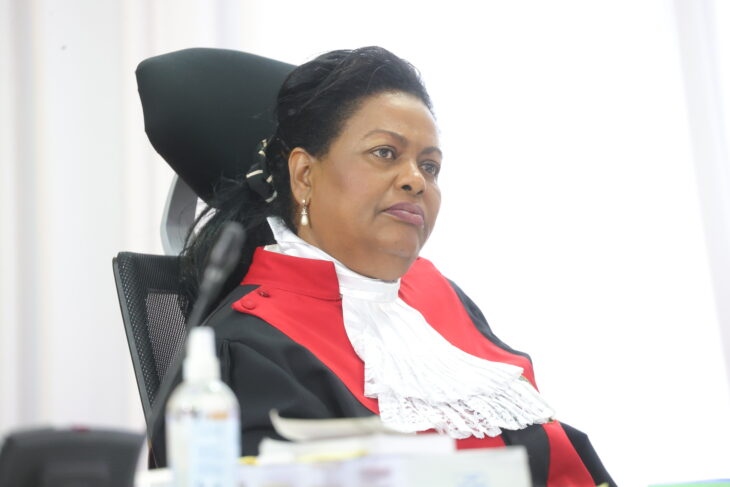NAIROBI, Kenya, Sept, 2 – The country’s Apex Court, the Supreme Court on Thursday raised pertinent questions to several counsels of the respondents as the hearing of the presidential election petition 2022 intensified.
The Petitioners of the case have mounted a legal offensive seeking the nullification of the presidential election results that saw the Independent Electoral and Boundaries Commission (IEBC) chairperson Wafula Chebukati declare United Democratic Alliance (UDA) presidential candidate William Ruto as the president-elect.
Supreme Court Justice Njoki Ndung’u raised several questions to the respondent’s lawyers, particularly on claims of an all-powerful Chairperson who allegedly conducted his business at the commission without any meaningful oversight.
“Drafters of the constitution introduced independent commissions and independent offices to deal with issues of authoritarianism, accountability, transparency and to do away with the issue of one person having power,” said Justice Ndung’u who further noted,” But from the narrative we are hearing from the court there appears to be an all-powerful chair…so what is the check for this all-powerful chair if the commissioners have nothing to do with his role?”
Following further claims that the other commissioners were assigned minimal chores, Ndung’u sought to understand what the roles of individual commissioners were as stipulated in the constitution.
“What is the role of the other commissioners? I think this is bothering me especially because it seems to me that your clients and the IEBC suggest the chairperson works with the CEO. I feel a bit concerned the CEO is not vetted by parliament, he is appointed but he seems to wield immense powers over and above the other commissioners,” she said.
Former Attorney General Githu Muigai representing IEBC was directed to expound further on what, the term “the commission can be used in multiple senses” and what ‘sense’ would be employed in specific scenarios.
“it hasn’t come clearly out if one commissioner says he is in charge of ICT what does that mean? Does it mean he is in charge of it until the presidential election then he is not? what does it mean?”
“What would happen if the chair was to announce the wrong results completely or if he was mentally incapacitated or sick or worst case scenario dead? who then would announce the results?” she posed.
The questions Ndung’u said were supposed to assist the court to understand the leadership and management in the commission as opposed to the management of the presidential election.
“Because I think there are two separate issues, I am trying to figure out whether this is a Chebukati problem, is it leadership problem, a commissioners problem, what is this problem we are seeing?”
Finally, she also sought answers on what the role of the commission was during the transmission of results from the local levels and how the information was transmitted to the public.
Want to send us a story? Contact Shahidi News Tel: +254115512797 (Mobile & WhatsApp)


